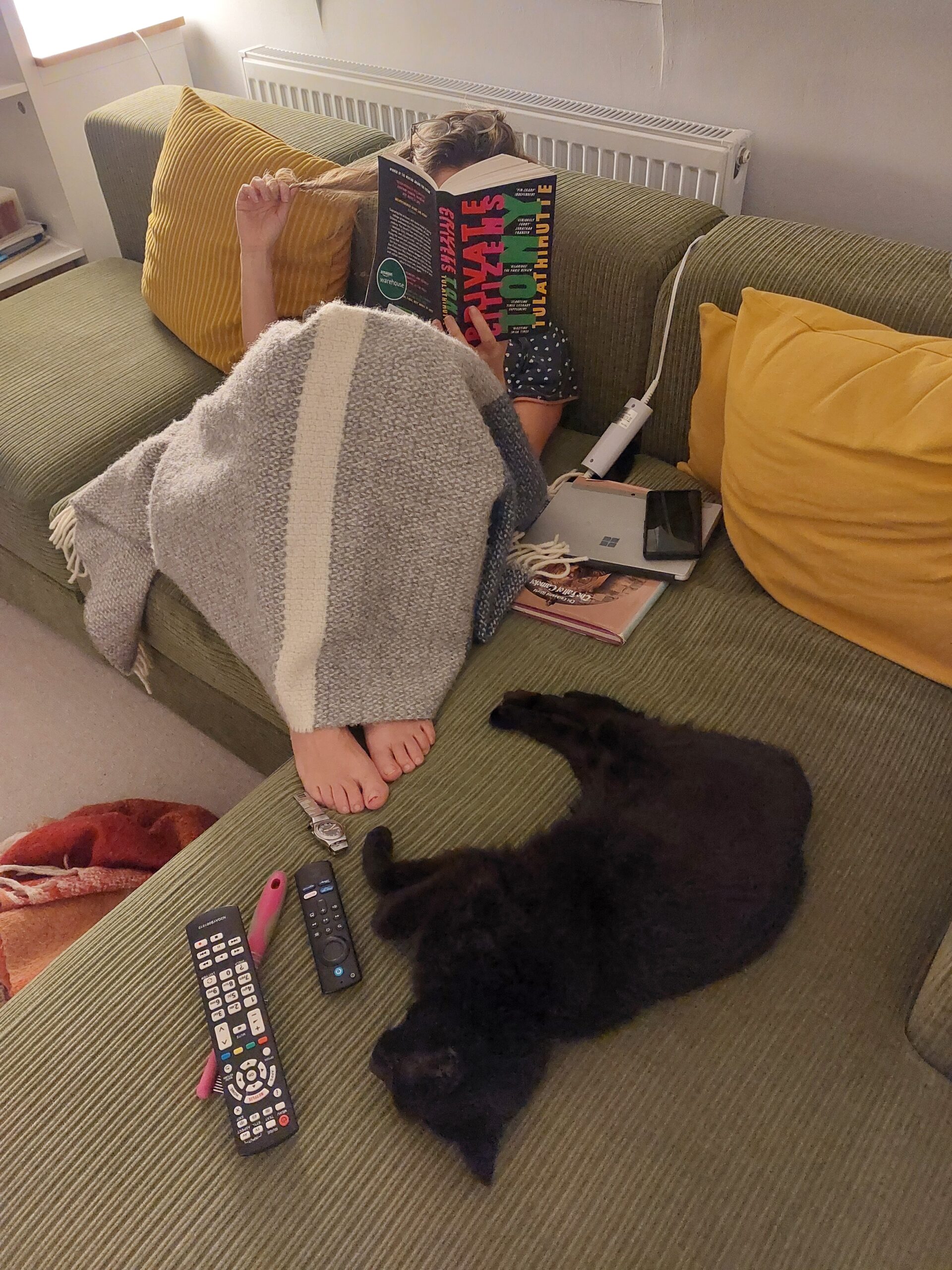This book is a fantastically named sequel to his first, THE SINGULARITY IS NEAR. The Singularity is moment at which our brains are able to meld with a computer, so we will – according to him – be able to be fantastically more intelligent. A bit like the leap from Neanderthal to today.
It’s a book absolutely bristling with ideas – I highlighted lots of it. Like, for example, do you know the odds of the sperm and egg meeting to make you was 1 in 2 million trillion? And then go back through all the people who had to meet and mate to produce your parents, to see how lucky you are to be alive. Even wilder, he talks about how many things had to go right for life to have emerged on earth at all; apparently it is the same likelihood as a tornado blowing through a junkyard and assembling a Boeing 747.
He has lots of big ideas for the future – for example, for when nanotechnology will be able to print anything, because it will be able to assemble stuff at atom level. So lithium will no longer be precious; nor will diamonds. He believes the world is getting better (did you know deaths from war in prehistory were about 500/100K; now they are 4/100K, even counting nuclear weapons?), and will continue to get better quickly. He makes some good arguments, pointing out how unimaginable landing on the moon was in the early 1900s, when no one had even flown yet.
I struggled a lot with all this talk of the ‘one way march of progress.’ I see what he means, but on the other hand, I’m not sure I do. What about the fall of Rome? What about the dangers of AI? I hate to say it, but all this boundless optimism just said one thing to me, and that one thing was: boomer. I get it, your life has just been one long upward swing. Here’s fingers crossed for the rest of us.










